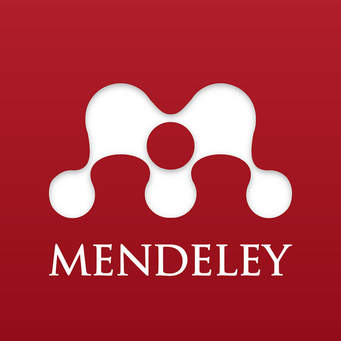- Focus and Scope
- Section Policies
- Peer Review Process
- Publication Frequency
- Open Access Policy
- Plagiarism Policy
- Review Guidelines
- Digital Archiving
- Licensing Terms
- Author Fees
- Author Fees
Focus and Scope
Jurnal Gizi Prima (Prime Nutrition Journal) is a journal aims to be a peerreviewed platform and an autthoritative source of information. We publish original research papers, review articles and case studies focused on nutritions and health. Published 2 (two) times per yea, in march and september. JGP focuses on various multi displines of nutrition, among others :
- Community Nutrition
- Clinical Nutrition
- Nutrition Institutions
- Food Technology Nutrition
Section Policies
Articles
Peer Review Process
Manuscripts submitted to Jurnal Gizi Prima (Prime Nutrition Journal) will undergo a selection and assessment process by the Board of Editors to ensure their accordance with the writing guideline, focus, and scope, and that they are of excellent academic quality. The manuscripts will be reviewed using the double blind peer review method in which case neither authors nor reviewers know each other’s identities.
Desk Review. At the desk review stage, manuscripts will be examined to ensure that they have met the writing guideline, focus, and scope with excellent academic quality. If they do not meet the conditions, the author will be given the opportunity to revise their manuscript according to the given criteria. However, there is also the possibility that the manuscript will be directly rejected.
Peer review. When the manuscript has passed the desk review stage, it will then be delivered to two reviewers who are experts in the field of the submitted manuscript. The review process will be done within 3 weeks. Manuscripts that did not successfully pass the desk review process will not proceed to this stage.
Reviewer’s decision. The reviewers will provide the following recommendations:
- Accepted; means that the manuscript is acceptable for publication
- Accepted with minor revisions; means that the manuscript is acceptable for publication once it is revised in response to the reviewers’ concerns
- Accepted with major revisions; means that substantive inadequacies in the manuscript, such as data analysis, the main theory used, and rewriting of paragraphs, need to be revised
- Rejected; means that the manuscript is not acceptable for publication or the given reviews relate to very basic issues
The reviewer’s decision will be considered by the Board of Editors to determine the ensuing process of the manuscript.
Revision Stage. Once the manuscript has been received with notations of minor or major revisions, it will be returned to the author with a review summary form. For manuscripts accepted with major revisions, authors are allotted 3 weeks to revise. Whereas for manuscripts accepted with minor revisions, 1 week is allotted for revision. When returning the revised manuscript, the author is required to fill in and attach the review summary form.
Final decision. At this stage, the manuscript will be re-evaluated by the Board of Editors to ensure that the author has revised in response to the reviewers’ concerns. In this final decision, the manuscript may still be rejected if the author did not seriously conduct the revisions necessary.
Proofread. Once the manuscript has been deemed acceptable by the Board of Editors, it will undergo a proofreading process to maintain linguistic quality.
Publication confirmation. At this stage, the final layout of the manuscript will be resent to the author to ensure that the content is in accordance with the author’s writing. At this stage, the author may revise any typographical error found in the final manuscript. Once confirmation from the author is given, the Editorial Secretary will process the manuscript for online publication on the website as well as print
Publication Frequency
Jurnal Gizi prima (Prime Nutrition Journal) is published twice a year in March and September.
Open Access Policy

- This journal provides immediate open access to its content on the principle that making research freely available to the public to supports a greater global exchange of knowledge. Benefits of open access for the author, include:
1. Free access for all users worldwide
2. Increased visibility and readership
3. Rapid publication
4. No spatial constraints
Plagiarism Policy
Jurnal Gizi Prima (Prime Nutrition Journal) Editorial board recognizes that plagiarism is not acceptable and therefore establishes the following policy stating specific actions (penalties) upon identification of plagiarism/similarities in articles submitted for publication in Jurnal Gizi Prima (prime Nutrition Journal). Jurnal Gizi Prima (prime Nutrition Journal) will use Turnitin's originality checking software as the tool in detecting similarities of texts in article manuscripts and the final version articles ready for publication. A maximum of 25% of similarities is allowed for the submitted papers. Should we find more than 25% of the similarity index, the article will be returned to the author for correction and resubmission.
Review Guidelines
Review Process of Manuscript: Initial Review
- Read the abstract to be sure that you have the expertise to review the article. Don’t be afraid to say no to reviewing an article if there is the good reason.
- Read information provided by the journal for reviewers so you will know: a) The type of manuscript (e.g., a review article, technical note, original research) and the journal’s expectations/parameters for that type of manuscript.; b) Other journal requirements that the manuscript must meet (e.g., length, citation style).
- Know the journal’s scope and mission to make sure that the topic of the paper fits in the scope.
- Ready? Read through entire manuscript initially to see if the paper is worth publishing- only make a few notes about major problems if such exist: a) Is the question of interest sound and significant?; b) Was the design and/or method used adequately or fatally flawed? (for original research papers); c) Were the results substantial enough to consider publishable (or were only two or so variables presented or resulted so flawed as to render the paper unpublishable)?
- What is your initial impression? If the paper is: a) Acceptable with only minor comments/questions: solid, interesting, and new; sound methodology used; results were well presented; discussion well formulated with Interpretations based on sound science reasoning, etc., with only minor comments/questions, move directly to writing up review; b) Fatally flawed so you will have to reject it: move directly to writing up review; c) A mixture somewhere in the range of “revise and resubmit” to “accepted with major changes” or you’re unsure if it should be rejected yet or not: It may be a worthy paper, but there are major concerns that would need to be addressed.
Full Review Process of Manuscript
- Writing: Is the manuscript easy to follow, that is, has a logical progression and evident organisation?
- Is the manuscript concise and understandable? Any parts that should be reduced,
- Eliminated/expanded/added?
- Note if there are major problems with mechanics: grammar, punctuation, spelling. (If there are just a few places that aren’t worded well or correctly, make a note to tell the author the specific places. If there are consistent problems throughout, only select an example or two if need be- don’t try and edit the whole thing).
- Abbreviations: Used judiciously and are composed such that reader won’t have trouble remembering what an abbreviation represents.
- Follows style, format and other rules of the journal.
- Citations are provided when providing evidence-based information from outside sources.
Digital Archiving
Jurnal Gizi Prima (Prime Nutrition Journal) stores back issues and current articles following LOCKSS idea of keeping lots of copies of our items on several servers to keep them safe.
Licensing Terms
Jurnal Gizi Prima (Prime Nutrition Journal) have CC-BY-SA or an equivalent license as the optimal license for the publication, distribution, use, and reuse of scholarly work.

Jurnal Gizi Prima (Prime Nutrition Journal) is licensed under a Creative Commons Attribution-ShareAlike 4.0 International License
Author Fees
Journals published in journals hosted by the Poltekkes kemenkes Mataram do not charge author publishing fees. All journals hosted by the Poltekkes Kemenkes Mataram are fully open access, with no charges to access or to publish.
Author Fees
This journal charges the following author fees.
Article Submission: 0.00 (IDR)
Authors are not required to pay an Article Submission Fee.
Article Publication: 300,000.00 (IDR)
If the paper is accepted for publication, you will be asked to pay an Article Publication Fee to cover publication costs.
The fee covers DOI registration for each paper.





